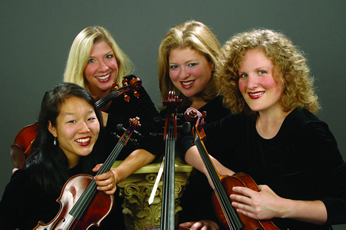The first of three performances of the witty and buoyant opera, The Rivals by Kirke Mechem (US, b. 1925), opened in the Agnes de Mille Theatre at the UNC School of the Arts. The press release calls the opera “a bright and witty comedy full of love, mistaken identity, duels and misunderstandings,” and that pretty much sums up the madcap plot. It is also a comedic look at class and generational difference. Fast action, a very clever text (written by the composer), and an exceptionally strong cast made the two-hour opera a delight.
In Mechem’s libretto, based on an 18th-century comedy by Richard Brinsley Sheridan (Ireland, 1751-1816), the action is moved from the resort town of Bath, England, to Newport, Rhode Island, at around the turn of the 20th century. The singers’ voices were strong and the supertitles ensured that the large audience caught many of the malapropisms (the term actually comes from a lead character in the play and opera!). One wonders how many lines of Mechem’s rhyming libretto came directly from Sheridan’s play.
Mrs. Malaprop (from whom the word malapropism is derived) was wonderfully sung by Spencer DesChenes. (This role will be sung by Lani Basich April 21). Her strong voice and over-the-top character, caring more about tradition than an individual’s desires, was carried out with larger-than-life acting.
Malaprop’s niece and guardian, Lydia Larkspur, was sung by Carolyn Orr, one of the superlative singers in the cast. Although Lydia is from a rich family, she is in love with the idea of living in “charming poverty.” Here is one of the humorous rhymes that permeate the libretto. Lydia (singing about her aunt): “I would rather marry a kangaroo than marry someone who likes you!”
To win the hand of his beloved Lydia, Jack Absolute, convincingly sung by Robert Raso, poses as Waverly, a poor English composer. He is actually “rich and dashing” and the son of Sir Anthony Absolute; this role was heartily undertaken by Kevin Spooner.
Another outstanding singer, Toby Bradford, was Nicholas Astor. He is hopelessly in love with Lydia’s cousin Julia, sung by Danielle Romano. Her interaction with Astor, who is afraid she might love him only for his money (she does not) helps confound the proceedings.
A few more characters add to the mad-cap intrigue. William Brickhouse was Baron von Hakenbock, a Prussian fortune hunter (who usually appeared with a mug of beer in his hand) wooing Mrs. Malaprop, who has been corresponding with him as “Celia.” (This role will be sung by Marcel Pietrus on April 21). Jasper Vanderbilt (from the sticks of Kentucky) was humorously sung by David Maize.
That leaves the cunning maid Lucy, lightly and believably sung by Alicia Bivona (to be sung by Anne Everhart on April 21). Her role supplies some of esoteric humor visible only to the audience: Mrs. Malpaprop often picks up items around the house, adorning her costume with these “props,” much to the irritation of Lucy.
To this listener, the score is uneven: lots of fast-paced, recitative-like conversation is mixed with some lovely solos, duos, trios, even a nonet at the end. Snatches of music that sounds reminiscent of La bohème or taken from Mozartian operas also enrich the score. Suffice it to say, it is incredibly eclectic.
UNCSA Music Director James Allbritten conducted the crack pit orchestra, comprised of a mix of students, alums, and ringers. His sprightly tempos and attention to balance between singers and players was superb. Award-winning stage director Stephanie Havey is the guest director: the action on stage was non-stop and the pacing was excellent.
The scenes, designed by Leo Murphy, were multi-functional; two main pieces were easily moved to serve as a number of locales. Lighting was designed by Frankie Stiehl-Guerra; several times, sudden changes in lighting heightened the humor. Supers Onyx Velez, Tommy Johnson, Reagan Almond, and Della Pierce served as maids and butlers, and efficient movers of furnishings.
The great costumes were designed by Teddy McMahon, and the almost realistic and humorous wigs and makeup were by Abbey Maruyama. Production stage manager, Eva Schramm and fight choreographer Kelly Martin Mann added immensely to the production.
The Agnes de Mille Theatre is a wonderful venue for productions such as this: it is an intimate space that puts the audience close to the action. Acoustics are first-rate, and the large audience was obviously delighted to be entertained by this production.
Performances repeat Friday, April 21 and Sunday, April 23. See our sidebar for details.












